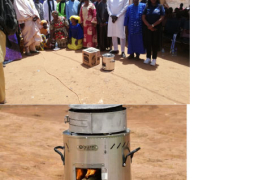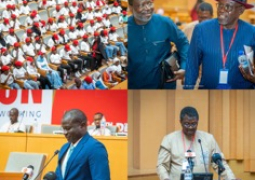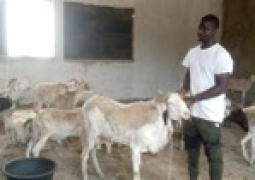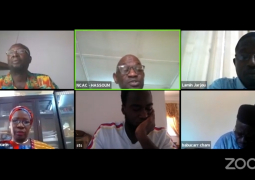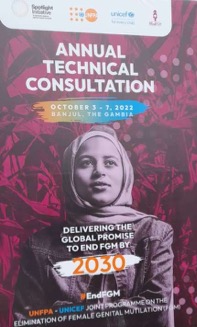
The forum was attended by 100 delegates from 17 countries across sub-Saharan Africa. The five-day forum aims to discuss mechanisms to eliminate FGM in the sub-region.
It is also meant to share experiences and progress, and discuss emerging challenges in the implementation of the joint programme to create a common understanding of the sense of urgency and need for acceleration to deliver the commitment to end the harmful traditional practice in Africa.
Fatou Kinteh, the minister of Gender Women and Children Welfare, stated that investing in women and girls is a central part of the Africa transformation agenda with the aspiration to end all forms of violence.
“In an effort to put into action to protect women and children’s rights, the government established the Ministry of Gender Women and Children Welfare in 2019 to protect the rights of women and children,” she said.
Gord Jonathan Lewis, UNICEF representative to The Gambia, said the annual technical consultation of FGM is an excellent opportunity to share understanding and call for the implementation of new commitments globally.
He explained that in The Gambia, the progress of eliminating FGM is likely slower and deniable. He continued that 89 % of women aged 15 to 40 are aware that FGM is illegal.
“The joint programme is a strategy to reach out to more communities on FGM. In The Gambia, approximately 164,000 people in a public declaration, a total of 1,570 communities have abandoned FGM,” he said.
Sarata Ceesay, speaker of the Children’s National Assembly, also reiterated that in its advocacy role, children have been doing a lot of advocacies on FGM by engaging community leaders, parents and stakeholders for the full implementation of laws that prohibited FGM/C and its related harmful practises.
“We understand the trauma women and girls go through during the period of FGM/C and it’s the reason why the children’s National Assembly has been involved actively in ensuring that the government of The Gambia act towards safeguarding and protecting the children, especially girls,” she added.
Speaker Ceesay continued that during the first sitting of the Children’s National Assembly, they adopted the Act dubbed ‘Call for Action The Gambia We Want’ to call on the government to fulfil its obligations as the primary duty bearer for protection and fulfilment of the children’s right.


